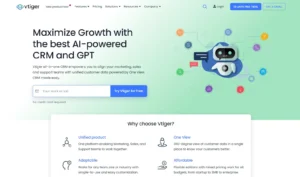Lead Management: Streamlining Your Process
What is Lead Management?
What is the Importance of Lead Management?
For every business, generating leads is essential as it can serve as a sales funnel. Lead management can help in reaching out to the right target audience and optimise the return on investment for a company.
Lead management is imperative to any business. It goes in-depth into the steps taken by a company in order to generate and convert leads into customers.
Lead management has become an essential part of the marketing world because it helps bridge the gap between marketing and sales teams. It makes sure that content marketers are able to create engaging marketing messages for their audience which can be directly targeted at them.
Companies need to be able to manage their leads effectively with a thorough understanding of their conversion rates, retention rates, etc. It is also important for those companies that are in a competitive market where leads are scarce.
Lead management helps businesses find what’s working and what’s not and make changes accordingly.
It includes planning, scheduling, tracking and closing. Lead Management is important for businesses to maintain their competitive edge in the market as well as to improve productivity. Lead management is important because it helps businesses increase their efficiency and deliver more relevant leads. It also allows them to focus on what matters most – their sales process.
The Lead Management Process
The lead management process is essential for most businesses in order to ensure a smooth sales process.
A company’s lead management process helps the company to run efficiently, identify opportunities and nurture the sales pipeline with leads that meet the lead qualifications.
A lead management process can be an integrated, iterative, and collaborative approach to generating new leads and capturing the right leads for your business needs. A good lead management process is important to keep up with the ever-changing landscape of your industry and competition.
Lead Management Processes are typically a combination of these:
- Qualitative Research – This helps you understand what your target audience wants from you, how they imagine your products or services, what their frustrations are, etc. This focuses on lead information.
- Quantitative Research – These are more objective data points, such as demographics and market research, that can help you have a better understanding of what is going on in the industry and how your competitors compare certain aspects of their target engagement.
Implementing an Effective Lead Management Process
Implementing a lead management process can be very useful in business. This process can help with building relationships and increasing awareness of your brand.
The lead management system has been around since time immemorial, but it’s no secret that it’s not easy to implement. There are so many variables to account for when it comes to the implementation of your lead management process. It’s helpful if you take these best practices into account before you start and create a lead management and generation plan of your own.
Creating a business process with a Lead Management Process is a crucial step in the marketing and sales process. This process should be designed to ensure that your company is able to collect leads in a timely manner and respond to them in a meaningful way.
To implement this process, you must design it from the ground up with the following steps:
- Identify customer needs;
- Develop your offer for those needs;
- Generate leads by targeting customers based on their unique profiles; and
- Respond to leads by creating custom marketing campaigns through different channels.
Identifying Buyer Persona
Identifying the Buyer Persona is an important task for sales professionals. It is helpful in effective targeting and improved lead generation to reduce costs and increase revenue.
The process of identifying the buyer persona involves a deep understanding of customers’ needs, wants, and how they behave. This can be done through analytics, social media marketing, interviews, workshops, etc.
In order to identify buyers effectively for a specific business opportunity or product, it’s important to identify who these buyers are in your target audience so that you can introduce your business or product into their life at a particular point in time.
Identifying buyer persona is one of the most important steps in the sales process as it helps organisations to understand their target audience, prioritise their efforts for lead generation, and ultimately boost revenue.
Distribution of Leads to the Sales Team
This is a common task that most companies have to deal with. However, it can be an overwhelming task for some businesses because the process can be time-consuming, and if not done properly, lead distribution can lead to high customer attrition rates.
In order to ensure that the business benefits from this process, you should consider these four key points:
- Establish a clear definition of the purpose of lead distribution.
- Define the eligibility criteria for mobile phone leads.
- Determine the content of your messages – including the number of words and tone.
- Track where your campaigns are performing best and if there is an increase in conversions after implementing new marketing tactics/apparel on a campaign.
Lead distribution is best done when:
- The sales team has been segmented into groups: sales engineers, account managers, service reps
- Every lead has been assigned to a single person (no sharing).
- Everyone knows what their job is and how to do it.
Sales Lead Generation
Lead Generation is a process that converts information about an organisation, its products and services, and potential customers into leads to generate revenue.
Lead Generation is a process that converts information about an organisation, its products and services, and potential customers into leads to generate revenue. For example, suppose that your business sells shoes online. You could use Lead Generation to find out which people are interested in buying this specific product so you can market more effectively.
Lead generation is difficult because it is not easy to determine how many people need information on your company or product before they are willing to purchase something. Companies can often rely on traditional advertising or marketing methods like press releases or advertisements when they lack the data needed to determine which marketing approach would work best for their needs.
The lead generation process usually involves three main steps:
- Identifying those who might be interested in your company’s offerings.
- Determine the best way of reaching potential customers, so they will want what you have on offer.
- Convert them to leads and from potential to actual customers.
Benefits of Lead Generation:
Getting More Customer Reviews
Using social media platforms and blogs, it is easier to gather customer reviews and generate leads.
Leads are a key component to any business’s success. There are many ways for businesses to find new customers in order to grow their revenue. In this day and age, digital marketing is the most important part of any organisation’s strategy. However, it is difficult for an organisation to focus on every single channel they have available as they might not have enough resources or enough time. This is where AI comes in handy by filling the gap and providing a great deal of value with limited resources being spent on these channels.
The lead generation experts recommend using reviews as a key marketing strategy because there is no better way of letting the customers know how your product or service can help them than by reviewing it.
There are many benefits of using review sites, some of which include the following:
- Review platforms provide a great way for consumers to distribute feedback about your products and services.
- It helps brands discover new products.
- Reviews improve company reputation.
- They help websites rank higher in SERP results.
Boost Revenue
Lead generation is a process that requires business owners to take the lead and create their own website and advertise it. The goal of lead generation is to generate leads for your business so you can sell more products and services. Lead Generation increases revenue for a business in many ways. It can help businesses increase their share of voice and brand recognition and, at the same time, increase their market share.
Lead generation will increase revenue by getting your business on top of the list for searches in Google. When people search for any given brand or product on Google, the first few results will be from the top retailers with a strong online presence. The most visible brand on this list will likely have an online store where you can purchase their product or service directly from them with just one click.
Create Business Opportunities
Lead generation is an increasingly important service for many businesses. By gathering customer data and creating a digital marketing strategy, a company can increase their revenue by having more leads to work with.
Lead generation benefits the business and, in turn, the consumer. Companies often take into account the lead’s demographics and interests in addition to their background information when generating leads for them.
Lead generation has the ability to increase revenue and provide a platform for advertising or a way for customers to provide feedback. The benefits of lead generation are very clear, but it is important that businesses know how they can generate leads with the least amount of time and hassle.
Lead generation means that you are increasing your sales opportunities with less effort and lead quality is much smoother because it is not relying on human-generated content as much as it would be otherwise.
Provide Visibility to the Enterprise
Businesses very often have to rely on having a healthy pipeline of leads to drive revenue. However, some businesses are either unable to generate enough leads or turn the ones that they do have into suitable sales opportunities.
Lead generation is a process that provides visibility to an enterprise’s business, and it is designed to focus on the target market while capturing customer information.
Nowadays, target-led marketing strategies have become a great way for enterprises in different industries to create revenue and grow their business at the same time. The benefits of lead generation involve increased revenue, increased customer retention rates, and better conversion rates.
Lead Management with Application CRM Software
Companies in the age of social media don’t have enough time to manage their sales pipeline. Application CRM software can help you manage leads and sales efficiently.
Lead management is an important part of business growth since it lays down the foundation for a long-term relationship with your customers and potential customers. Applications like Salesforce CRM can help you find the right leads, nurture them well, close deals quicker, and increase your revenue in a big way.
Lead management software is a first-class tool that can increase efficiency, productivity, and revenue for any business. Lead management software can be used to manage leads from inquiry to conversion. It can help you manage your pipeline through sales; with CRM software, you will be able to make the best use of your time and resources.
There are many benefits of using application CRM software for lead management. It helps in reducing the cost of marketing by streamlining the process and automating tasks like identifying and prioritising leads based on their conversion potential. The system also helps companies to make better use of opportunities that are relevant to their business objectives.
Conclusion:
In conclusion, lead management is an important part of any successful business. Proper lead management can help you identify and track your leads, convert them into customers, and maximise your profits. By following this article, you can build a strong lead-management system that will help your business grow and succeed. Lead management is important for two primary reasons:
- Ensure that the leads being collected are of the highest quality; and
- To ensure that the leads are used effectively.
By properly managing your leads, you can increase your chances of achieving success with your marketing campaigns.
FAQs
How successful can a business be through proper lead management?
Lead management is the process of managing leads in order to convert them into sales. The success of a business largely depends on the lead generation strategy.
Lead management is often overlooked by businesses at the time of planning their marketing strategies. It is important for businesses to have a clear understanding of how they can use lead management techniques to increase their revenue and improve customer retention.
The most successful way for businesses to generate leads through lead generation is through content marketing and social media marketing. These are the best ways for companies to generate leads as they are cost-effective and provide long-term benefits.
How can I implement lead management with fewer costs?
Lead management is a process of acquiring and managing leads. It can be implemented at less cost by using AI tools.
Lead management is a process of acquiring and managing leads. The traditional method of lead management is manual, which means that it requires significant effort from the company’s team members. This manual process often creates a lot of errors, which in turn increases the cost for the company.
In order to reduce costs, companies can implement AI tools for lead management to streamline their processes and eliminate human errors.
Is lead tracking relevant to lead management?
Lead tracking is a process that helps identify the number of leads generated by different marketing channels. Lead management is a process that helps in converting those leads into sales.











